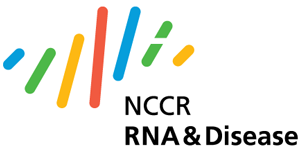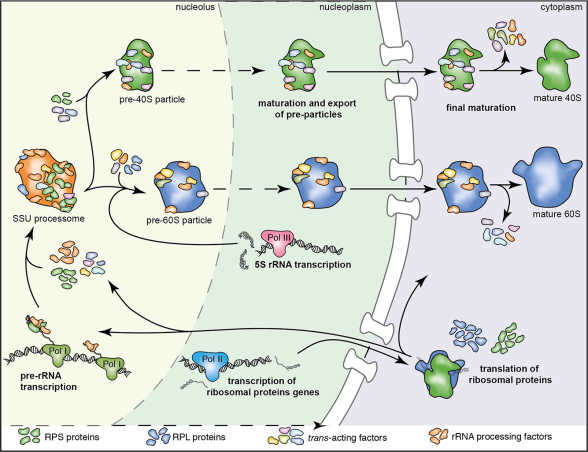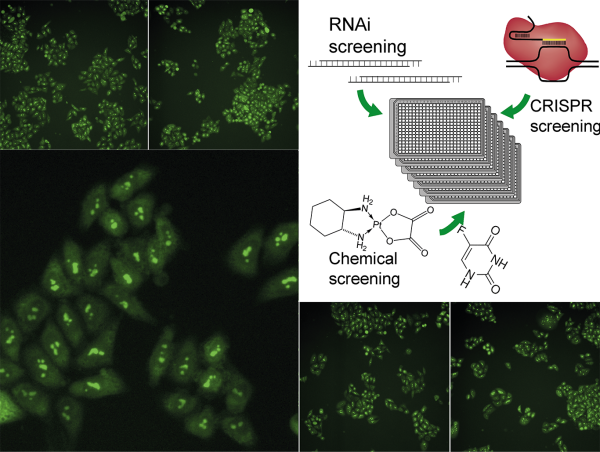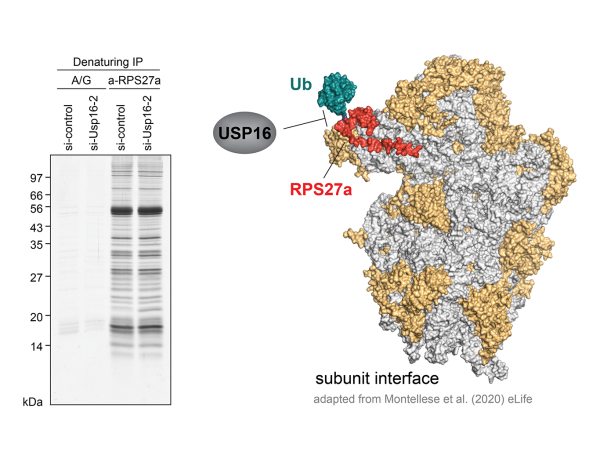Ribosome synthesis in human cells
We seek to decipher the mechanisms that govern the highly complex and mechanistically unique processes responsible for the production of ribosomal subunits in higher eukaryotes. Pre-ribosomal subunits are produced in a dedicated nuclear subdomain, the nucleolus, involving a series of pre-rRNA-processing, RNA-modifying and protein assembly steps. Premature ribosomal subunits are released into the nucleoplasm, where they undergo further maturation and are finally exported to the cytoplasm for final maturation and function in protein biosynthesis. Ribosome biogenesis is regulated by a plethora of signaling pathways that integrate growth factor and nutrient availability. Although ribosome synthesis is an essential cellular process in healthy as well as malignant cells, recent evidence suggests that the pathway is a promising new target for cancer therapy as cancer cells are more strongly affected by defects in ribosome synthesis. Our research on ribosome synthesis is embedded in a Swiss-wide research consortium, the NCCR 'RNA and disease'.
Using a combination of microscopic assays, high-content screening approaches, reverse genetics (RNAi, CRISPR), proteomics and structural biology, we
- identify and characterize the role of trans-acting factors in the assembly pathway and investigate their links to human diseases
- study the regulation of ribosome synthesis
- investigate pathways involved in the surveillance of ribosome assembly and in the degradation of (pre)-ribosomal subunits
- seek to identify chemical compounds for the inhibition of ribosome synthesis in cancer cells
Links:
external pagehttp://www.ribosomebiogenesis.orgcall_made
external pagehttps://nccr-rna-and-disease.chcall_made




